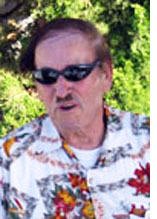
The Creative Destruction of Medicine: How the Digital Revolution will Create Better Health Care by Eric Topol M.D.; Basic Books, 2012, ISBN-13: 9780465025503, 320 pages.
By Joel A. Moskowitz MD, FAPA, FAAP
LA JOLLA, California–Dr. Eric Topol is a genius, who is based here in La Jolla. The beginning of his book, The Creative Destruction of Medicine has a telling quotation: “Doctors prescribe medicine of which they know little, to cure diseases of which they know less,in human beings of which they know nothing” attributed to Francois-Marie Arouette Voltaire about 250 years ago! The cell phone was invented in only 1973 (Marty Cooper) and in 1975 Michael Wise invented the computer. When we refer to something going ‘viral’ it is not the disease we refer to but the rapid spread over the internet. So blended is the digital revolution and verbiage taken from medicine. Dr. Topol prophesizes that medicine will rocket forward propelled by advances in wireless technology including major advances in all sorts of sensors. He fortells that the ‘emergence of powerful tools to digitize human beings…will forever change the delivery of health care.”
If your interest is not in health, Topol will convince you that you cannot escape the marvelous tidal wave of the unimaginable expansion of how we communicate, record, solve puzzles, transmit data. In 1899, a much revered physician, Sir William Osler urged his fellow physicians to care for the individual rather than the special features of the disease. Dr. Topol’s credo is that with the ultra diagnostic new ideas more exact and true findings of benefit to the individual will result. Presently population studies are employed to seek the worth of treatments i.e. is the statin drug better than a placebo. Advanced programs of pharmacogenomics analyze whether your genes are going to cause you to be prone to illness such as heart attacks, and rheumatoid arthritis and what would be best medication for you based on your gene structure. These methods are still in their infancy.
Clicks and Tricks Topol’s third exciting chapter leads off by telling the reader that medicine has embrased innovation from the stethoscope, the X-ray, MRI and robotics. Nothing has been more important than the development of the internet. To make his point the author seems hard on the current diagnostic and therapeutic regimen. He clearly values the potential of using the patient’s gene type to select the right drug.
The patient is at the mercy of perspective. He might want to choose one of the ten best hospitals (rated by such as Thomson’s Reuters) but not withstanding the statistics that indicate patients do well in those facilities, you might just find a doctor who is a lemon. He divulges the ‘secret’ which is not available on the internet per se to find a better doctor. One step is to look at Google Scholar to find who has written articles about your health predicament. Topol guides the reader to enhance their search for a better physician. This in itself should be enough to excite you to buy this book and read it.
Someday the standard of care will encompass assaying your genetic makeup and linking it to which medication will work best.Imagine if the doctor could assay the genetic profile of the cancer and prescribe a drug which will more precisely kill that tissue vs the present shot-gun chemotherapy. Combine that with a way to monitor your pulse, blood pressure, oxygen saturation and EKG from afar using ultra-novel health surveillance systems. The minute-by-minute information about your vital signs will be of inestimable help to precise prescription. Insurance firms (e.g. Medicaid) would not reimburse for telephone consultations. Ulitmately, carriers would permit radiologists or cardiologists to interpret films or cardiac findings when they were done on a distant Indian reservation by a technician. Medical myths will hopefully disappear with the new med-tech.
Dr. Topol is not aversive to using anecdotes and illustrations, some of which come from his own family. He describes an interaction with his wife, who he describes as “a night owl” at a time when he was having his brain waves monitored. When his wife came into talk and he feigned sleep, however: ‘It is hard to play possum with a device monitoring your brain waves.” The text is not all high-tech and sleep inducing but with a flavoring of humor and humanity.
With SDG&E installing monitoring devices to check your electrical usage and contemplated drones being developed for spying on citizens, privacy and adverse use of personal data are a worry. The author is passionate about the good that advances will produce outweighing the potential bad.
Dr. Topol has many hats: He is a practicing cardiologist at Scripps Clinic; professor of Genomics at Scripps Research Institute; chief academic officer at Scripps Health and he has more ‘braid’ that attest to his premier credentials.
It is prescribed for intelligent, inquiring minds (Rx Rx Rx Rx Rx 5/5)
*
Dr. Moskowitz is a freelance writer based in La Jolla. He may be contacted at joel.moskowitz@sdjewishworld.com
An enlightening read with something for everyone
Pingback: La Jolla doctor foresees computerized revolution for medicine | San Diego Jewish World
Pingback: Latest Search Doctors News